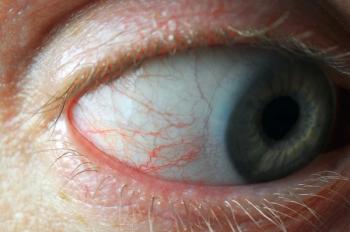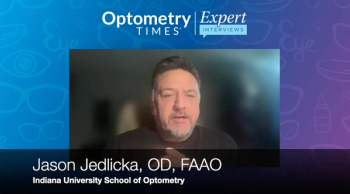
Hypoglycemia may promote a breakdown of the blood-retinal barrier, study finds
New research reveals how low blood sugar can damage the retina in diabetes, highlighting potential treatments targeting specific proteins to prevent vision loss.
A new study found that low blood glucose (hypoglycemia) may promote a breakdown of the blood-retinal barrier – a boundary that regulates the flow of nutrients, waste, and water in and out of the
The study was a mice model and offers insight into the origin of diabetic retinopathy, specific to patients with hypoglycemic episodes. The
Testing HIF’s role in hypoglycemia by inducing periods of low blood glucose in mice with and without diabetes, researchers found that mice with diabetes had higher levels of HIF during hypoglycemia that would promote the breakdown of the blood-retinal barrier, causing leakage in retinal blood vessels. In contrast, mice without diabetes did not experience higher levels of HIF.
Furthermore, the team used an experimental drug known as 32-134D, which inhibits the HIF protein. It was found that in some diabetic mice that received an injection of 32-134D prior to induced episodes of hypoglycemia, lower HIF levels were observed.
“These studies help explain why patients with diabetes who are initially started on tight glucose control, the cornerstone of diabetic management, or those with high glycemic variability (transient episodes of very low – followed by very high – serum glucose levels), experience worsening of their diabetic eye disease,” said author Akrit Sodhi, MD, PhD, associate professor of ophthalmology and the Branna and Irving Sisenwein Professor of Ophthalmology at the Johns Hopkins University School of Medicine and the Wilmer Eye Institute.
Further studies on HIF, the breakdown of the blood-retinal barrier, and 32-134D in patients with diabetic retinopathy are planned.
“Our findings underscore why therapies targeting HIF will be an effective approach to prevent or treat diabetic retinopathy,” Sodhi said.
Additional authors for this study include Chuanyu Guo, Yueqi Niu, Xuemei Pan, Deepti Sharma, Evan Lau, Yang Jin, Md Amanullah, Kevin Lo, and Jiang Qian of the Wilmer Eye Institute, Johns Hopkins Medicine; Guillaume Luxardi and Ala Moshiri of the University of California, Davis; and Silvia Montaner of the University of Maryland. Xuemei Pan also has affiliations with the Shandong University of Traditional Chinese Medicine.
Reference:
Johns Hopkins Medicine. Low Blood Sugar Contributes to Eye Damage and Vision Loss in Diabetic Retinopathy; Experimental Drug May Help Treat Condition | Newswise. Newswise.com. Published May 6, 2025. Accessed May 8, 2025. https://www.newswise.com/articles/low-blood-sugar-contributes-to-eye-damage-and-vision-loss-in-diabetic-retinopathy-experimental-drug-may-help-treat-condition
Newsletter
Want more insights like this? Subscribe to Optometry Times and get clinical pearls and practice tips delivered straight to your inbox.















































